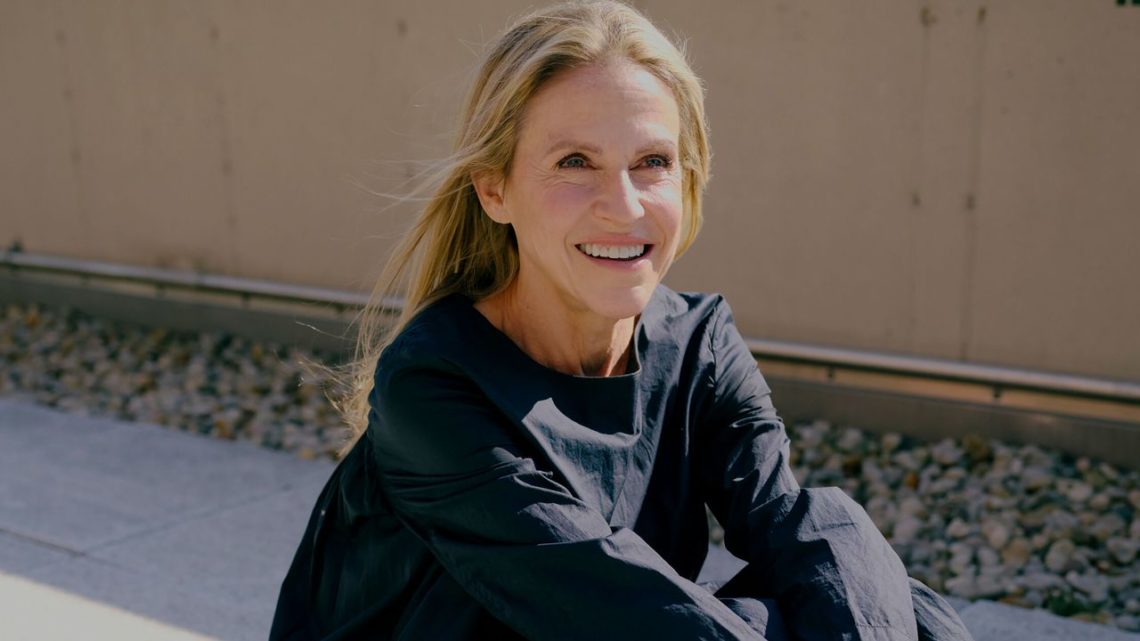In early October, conservative magazine Evie made the jump to Substack. The magazine, founded by influencer Brittany Hugoboom and her husband Gabriel Hugoboom, has been using the new platform to share some of the greatest hits from its almost seven years of existence—mostly personal essays with salacious, theatrically clicky headlines like “I Grieved Through My Vagina,” “Why Fairy Tales Do What Therapy Can’t,” “I Thought a Baby at 16 Would End My Future. Then I Had Two,” and “Why Do I Avoid Sex with My Husband?”
To some readers, that confrontational, warts-and-all tone feels an awful lot like the work of another prominent Substacker: Jane Pratt. Currently the editor of the online newsletter “Another Jane Pratt Thing,” Pratt has a storied media career that stretches from the influential run of alternative teen magazine Sassy (1988–1996) to her women’s magazine Jane (1997–2007) to her sometimes scandalous digital outlet xoJane (2011–2016) all the way through the present. Her work is famous—notorious, even—for taking the buttoned-up language of a previous era of women’s magazines and bringing it down to earth.
“God, I would hate to think that Jane and xoJane would have contributed to this in any way,” Pratt tells Vanity Fair in a recent conversation. Still, she also sees the similarity. “The idea of the ‘It Happened to Me’ first-person confessional is what opened the floodgates for what they’re doing.”
These days, Pratt is finally getting to work on a memoir that will dig into juicy topics like her celebrity friendships (she’s still tight with Courteney Cox and Chloë Sevigny), her rise and fall and rise in traditional media, and the saga of one of her protégés, Cat Marnell—who parlayed her time at xoJane into media notoriety and a best-selling memoir called How to Murder Your Life. (For the record, Pratt says that she and Marnell are also still close.)
“Cat and I have a real deep love for each other in spite of all the hell she put me through,” Pratt says. “Cat will figure prominently in my memoir, so I have a good opportunity to get her back.”
Below, Pratt digs into the legacy of her “one good idea,” sending her editors to try out sex tips, and what the conservative cultural turn has meant for a new generation of young women.
Vanity Fair: You started “It Happened to Me” during the time you were editing Sassy. What was the genesis of that series?
Jane Pratt: When I read the magazines that existed at that time, I would skim past the expert opinions: Dr. So-and-So from Harvard Medical School advises you to do this or that. I would go straight to the anecdotes from the people who were experiencing these things, because that’s all I cared about. So, it was about recording people verbatim, talking about something that had happened to them, and printing it with all of their “ums” and “likes” intact. I thought there was a real power in seeing someone else’s story that you may relate to or may not relate to—it connects people. It has been the longest-standing thing I’ve ever done, and the most popular of anything I’ve ever started.
You wound up bringing the same series to Jane and xoJane. How did that persist through your different projects?
I don’t think I could get rid of it if I wanted to. There is such a demand for it, honestly. I do it right now at “Another Jane Pratt Thing.” There’s something compelling about the idea, I think particularly now, that they’re not going to have to wade through expert opinions or fake stuff—that they’re just going to get the real story.
I know you got backlash for “It Happened to Me” at xoJane, but I have definitely seen some nostalgia for that website lately, because the internet feels so much less human now. Do you hear that nostalgia?
“It bothers me that they are using that language where they make the more progressive media directed at women seem like the mainstream, and they’re the little upstarts fighting against it.”
For a while, it was all Sassy nostalgia, and then it was for Jane magazine. But now people are coming around on xoJane. They’re writing to me and sending me their favorite headlines from that version of “It Happened to Me.” They were outrageous. Like, “My Gynecologist Found a Cat Hairball in My Vagina!” We did do some that we got raked over the coals for, and rightfully so—like one called “My Best Friend’s Death Was a Blessing.” But I still think that they were about real topics. Then there’s horrible ones, like, “There’s Only One Black Woman in My Yoga Class.”
That one was not great! But we all remember it, and it seems like their influence continues to spread. You said you’ve seen Evie, the conservative women’s magazine. What do you think about the first-person writing in their newsletter? Is there any similarity to what you’ve done throughout your career?
It’s really weird to see the people behind Evie using the same language that we used when we came out with magazines like Sassy and Jane. They were alternatives to the mainstream media that was out there. They use that same language to promote something that is even more retro than what we were coming out against.
My first paying magazine job was at McCall’s magazine, one of the Seven Sisters [a group of magazines founded between the 1870s and the 1930s that saw housewives as their audiences]. When I look at this content, it’s like, back to that. It’s that retro ’50s and ’60s-era traditional housewife: “Please your husband, make him the king” stuff. But coupled with it, it’s got sexual content that’s actually pretty raunchy. The poor woman who writes all about her sex life with her husband [in Evie] is using words like “cock” and “pussy.” We didn’t even do that in Jane magazine, and our sex coverage was pretty bold at the time.
It’s a funny contradiction—the language is modern, but the ideas are very old.
It’s back to the original Cosmo under Helen Gurley Brown. Now that seems comparatively progressive, because at least Helen said [sex outside of marriage] was okay. Whatever type of sex or [who] you wanted to have sex with was acceptable, even though it was all still focused on male pleasure.
Evie puts an italicized disclaimer at the top of most of their sex articles saying, “This content is for married women only.” Which is also utterly ridiculous. Like, if we say that at the top, then we can get really raunchy and say all the stuff that we know will draw readers. A lot of publications do that. I’ve done that before, because it’s what sells. That stuff is probably increasing their numbers more than their anti-vax or anti-choice content. But the sex stuff is all very, very fabricated. It’s not about actually being who you are, celebrating who you are, being actually intimate with the person that you’re with.
My memory of the sex writing in Jane specifically is that it was all about pushing back against gender roles, or the idea of “tips,” and more about promoting exploration. Is that correct?
I was just thinking about this article we did at Jane, where we took all the sex tips from the other women’s magazines, and we tried them. In the middle of sex, one of my editors had to take off her scrunchie from her hair and put it around the base of her boyfriend’s penis. I think that was something that Cosmo had advised. He was like, “Wait, who are you? What is happening?” Because they have an actual, equal intimate relationship where they know each other, and it was bizarre. There was another one where you had to arch your back, smile, put your neck this certain way, and do all these different things while you were having sex, but it just didn’t work. That seems to be the kind of advice they’re giving in Evie too—going back to all of that artificial, not empowered stuff. Just because they are owning their own oppression sexually doesn’t mean that they are empowered sexually, right?
In their most recent print issue, they say they miss the romcoms of 2004 or 2005, or even Twilight, which came out in 2009. Is it funny to see newer conservatives embracing that era, even though conservatives at the time were hating every minute of it?
MAGA likes going backward to wherever because it feels good. It feels safer. But it’s all strange, and it’s all arbitrary. Why is a sundress more acceptable than a little black dress? You know what I mean? But it bothers me that they are using that language where they make the more progressive media directed at women seem like the mainstream, and they’re the little upstarts fighting against it. I started in a time where Glamour and Marie Claire, and all those magazines were thriving. Now we’re in a time where all that slightly more progressive media toward women is declining. For them to come out and say, “We’re fighting against the man,” just seems like a complete lie. But it’s scary because of the rest of their really dangerous content that they’re pedaling within that argument.
Evie is presented to women, but it’s for women who please men. The premise of a magazine like Evie is that women are at their most miserable when they’re not married, just having random sex, having to work outside their homes. Like it’s a really unhappy time for women, and they’re coming in to save us. But I don’t see that at all!
From your time at McCalls and now “Another Jane Pratt Thing,” you’ve seen the whole sweep of a lot of changes. How do you think women are doing?
Up until recently, it’s been a good time for people in terms of being able to express themselves. You have the ability to live any kind of life you want, and the fact that gender is not necessarily the big determining factor of your life—there’s much more gender fluidity. People are able to express different sides of themselves, and women are included in that. But now it’s obviously becoming much more oppressive.
“The TV show Girls also had a parody of me, an editor named “Jame” who made Lena Dunham snort cocaine. I love that stuff.”
Conventional wisdom says Gen Z is more conservative than previous generations. Is that true in your experience?
I see it just anecdotally all the time—the men in that generation are so much more likely to be MAGA supporters and right-wing, and the women are not. But it’s not that the women are necessarily fighting for more progressive or more left-wing causes. It’s almost like they are not allowed to have any opinions. It feels like a throwback to a time when all the advertising actually was directed at men, and women had to influence their husbands behind the scenes to get them to buy what they wanted. It feels like culture is putting the men in charge, and women’s role is—sometimes through sex—to get these men to do what they think is the right thing, but they can’t out and out advocate for it themselves.
In thinking about the influence of Sassy, I remembered a Daria episode featuring a character that was a parody of you. Have you rewatched that at any point in time? How does satire about you make you feel now?
The Daria thing, it does come up a lot. Pretty much every comment thread about me, someone will be like, Oh yeah, and they’ll mention it. I didn’t even see it at the time! I was so busy working, and then people did bring it up to me. I did watch it eventually, around when I was starting xoJane. I liked it! The TV show Girls also had a parody of me, an editor named “Jame” who made Lena Dunham snort cocaine.
I love that stuff. Even if my true motives are not necessarily coming through in those parodies, it means I have a strong stance. People get what that is and either relate to it, or don’t relate to it, or like it, or hate it, or whatever. I was on the back cover of Mad magazine once. And then the Sassy sketch from Saturday Night Live. I like that stuff. I would love more of it.
Sassy only existed for about eight years, but you continued to loom large, at least in comedy writers’ rooms.
When I see things like the Daria parody or the Girls parody, I feel like I raised them right with Sassy. I taught you all exactly how to do that. Be outspoken, ballsy, not deferring to authority. It’s like, okay, I reap what I sow.
What do you think of the current media landscape?
I think it is really frightening how few outlets we now have that are not corporately owned. The opportunities to be different in mainstream media and gain an audience that way feel diminished. Social media is so controlled and so manipulated, particularly around politics and political issues, and everybody sucking up to Trump—that’s been a really scary change. A lot of my friends don’t go on social media anymore. I also boycotted it for a while, but then I felt I had to go back to it for my work. It feels like the messages we’re getting are definitely one-sided—and they’re not one-sided in the way that Evie Magazine is trying to say they are!
When I was starting “Another Jane Pratt Thing,” people would say, “Why another one?” Because it is my fourth publication, with my one good idea that I’m doing again and again and again. But the reason is because it’s still needed. Publications like Evie keep me in business, because we need to keep presenting the actual progressive alternative.
More Great Stories From Vanity Fair
-
Cheryl Hines’s MAGA Makeover
-
King Charles Strips His Brother Andrew of “Prince” Title and Royal Housing
-
The 25 Best Movies on Netflix This November
-
The Breakup Album That Has Everyone Talking
-
What Really Happened on the Set of Baby Jane?
-
If Lizzie Borden Didn’t Kill Her Wealthy Parents, Who Did?
-
How 16-Year-Old Virginia Roberts Giuffre Life’s Unraveled at Mar-a-Lago
-
The 25 Best Shows to Watch on Netflix
-
Charli xcx Enters Her Next Chapter
-
From the Archive: The Hollywood Secret Katharine Hepburn Helped Bury
The post It Happened to Me: I Asked Jane Pratt About Trad-Wife Confessional Essays, Conservative Media Queens, and Her Own Next Plans appeared first on Vanity Fair.




